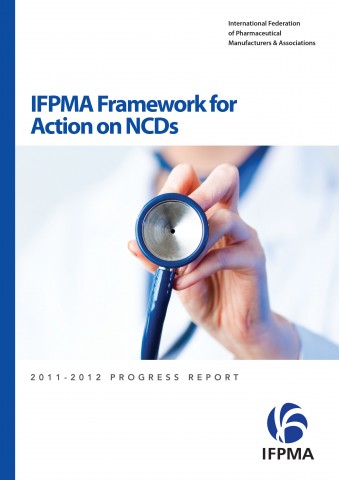Delivered by Mario Ottiglio, Director, Public Affairs & Global Health Policy
Check against delivery – Item 13.3 Prevention and Control of Non Communicable Diseases
NCD Global Coordination Mechanism
Thank you for the opportunity to contribute to this important discussion today. IFPMA represents leading research-based pharmaceutical companies as well as national and regional industry associations across the world.
Discussions on a Global Coordination Mechanism on non-communicable diseases are of critical importance to ensure that many of the commitments that the international community has taken are adequately fulfilled.
In our view, the current terms of reference make achieving success a challenging endeavor.
A global coordination mechanism should have been able to operate under clear objectives and deliverables that would be time-bound, sufficiently resourced and outcome-focused. This is because we need to be able to start delivering health solutions in the short term that encourage and motivate even broader involvement in more long-term concerted actions.
While the mechanism was conceived to become an innovative body that would allow a diverse set of actors to interact under appropriate safeguards and clear but flexible processes, the current terms of reference do not allow for effective and meaningful participation of non-state actors.
Multi-stakeholder, multi-sectoral action is a too much needed component in the fight against NCDs. The recent partnerships and activities initiated by many international organizations and non-state actors, including the IFPMA, have proven the value of these approaches.
IFPMA will keep looking for opportunities to highlight the value of partnership and will work with partners to design and deliver impactful solutions that can help the case for a strong global coordination mechanism. We hope these terms of reference are a first step that will be soon discussed in an inclusive consultative process.
Thank you.











